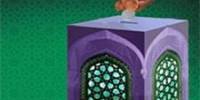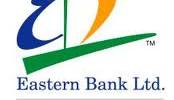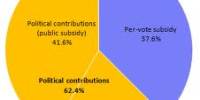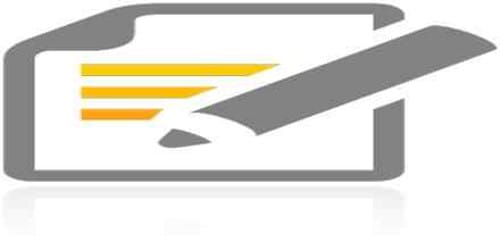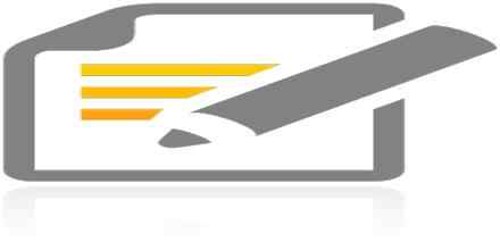Introduction:
General Banking is the heart of Banking. Here money collection procedure occurs.
Other services, like cheque encashment, account transfer, account closing, bills and remittance are given here. So general banking is the most important thing in banking service.
Procedures:
1. Issuance of token, Maintenance of subsidiary day Book, writing of day Book, balancing of Ledger.
2. Opening of A/c, Mudaraba Savings A/cs, Mudaraba term deposit A/c, Al-Wadiah current A/cs, Mudaraba Hajj saving A/cs, writing of A/c opening registers and issuance of pass book and cheque Book.
3. Maintenance of current A/c ledgers, deposit ledger and TDR ledger and operation of computer.
4. Writing of transfer scroll, statement of current A/cs and deposit A/c and Haff deposit A/c pass book.
5. Bills: Outward & inward Bills (OBC & IBC) and clearing.
6. Remittance: Issuance and payment of DD, TT, PO etc.
7. Writing of clean cash Book and posting of General Ledger and checking of computer final sheets with General Ledger.
8. Maintenance of charges, suspense and sundry deposit A/c, maintenance of dead stock and stationery articles registers.
9. Schedule Telegram and preparation of General ledger A/c statement.
10. Establishment: Preparation of Salary, pay sheet, LPC, maintenance leave register, personal files and method of correspondence and payment of income tax.
11. Reconciliation of General A/c.
Despatch:
Inward:
1. Inward mail, other than those which are registered, marked confidential and addressed personally to same official, may be opened by an authorized member pf staff who should enter in the inward mail register and mention serial number of the mail register on the letter/ paper received, affix “Received” date stamp on it and delivery the same to the concerned officials against acknowledgment.
2. Letters addressed personally to any official shall be opened by the address only.
3. Registered mails and mails marked confidential will be opened by an officer or management in small branches. All these letters shall however entered in the inward mails registers.
4. Stop payment instructions and court orders shall be received authorized officials who will immediately note date & time on it and take necessary steps.
Outward:
1. Outward letters must bear serial number and entry in the register with name and address.
2. Each typist will maintain a typist master file and dispatch Clark also maintain a separate master fete for future record.
3. Local letters may be delivered through peon book. If the area is large and letters are many in number, service of post-office may be utilized.
4. Letters dispatched must be entered in the outward mail register and bear proper postal stamps, if sent through post office.
5. Remarks such as ‘Urgent’ ‘By Airmail’ ‘Register’ ‘Registered with A/D’ ‘Confidential’ etc. must appear on top of the letter as well as envelop.
6. If the letters are sent by registered post or courier service, postal receipt/ courier receipt must be maintained by the dispatch department in a file. Similarly acknowledgments received back should be maintained in the file.
7. If any telegram is sent by any branch, a copy of the message duly signed by authorized officer must be sent by post to the address as confirmation.
8. Similarly when the branch receives any inward telegram, they must compare it with the confirmatory copy when received.
9. Receipt for telegraphic message issued by telegraph office should be maintained in a file and authorized officer must check them at the time of passing expenses voucher.
10. If any telegram is sent relating to services given to a customer. Charges should be recovered from the customer concerned.
11. Manager and other officers of the bank must ensure economic use of telephone. Trunk call & STD conversation must be short. If telephone is used on account if customers, charges must be recovered.
12. Trunk calls & STD calls must be recovered in the trunk call register and verified with the telephone bill when received from T&T office.
General Characteristics of Deposit Account:
Bank receives deposit by different accounts. Those are two types:
i) Al Wadiah — Client A/C is conducted under Al – Wadiah system
ii) Mudaraba Mode — Client- Sahib Al Mal
Bank- Mudarib
Under this arrangement – profit distribution under agreed ratio and loss (if any) will be borne by Sahib Al Mal
Under Mudaraba mode there are many accounts as under
i) MSA – Mudaraba Savings Account
ii) MHSA – Mudaraba Hajj Savings Account
iii MSB – Mudaraba Savings Bond
iv) MSS – Mudaraba Special Scheme
v) MTDR – Mudaraba Term Deposit Account
vi) MMPDS – Mudaraba Monthly Profit Deposit Scheme
vii) MMS – Mudaraba Mahor Savings A/C
viii) MSNA – Mudaraba Short Notice A/Cs
Al-Wadiah Current A/C (AWCA) :
AWCA accounts are unproductive in nature, is4rtature, as banks lovable investment fund is concerned sufficient fund has to be kept in liquid from, as current deposits are demands liabilities. Thus huge portion of his fund becomes on performing for this reason banks do not pay any of AWCA – CD account holder. Businessmen and companies are the customers of this product.
Mudaraba Saving Account (MSA):
As per Bangladesh bank instruction 90% of SB deposit are treated as time liability and 10% of it as demand liability. In IBBL there is a restriction about drawing money from SB account but any time holder may draw money of any amount with prior -motive. General house holder and individuals are the clients of this account.
A/C Opening Eligibility:
a) Persons over 18 years (except some restricted persons)
b) Account of Club
c) Association
d) Agent
e) Govt.
f) Semi Govt.
g) Organization
h) Liquidators
i) Minor
j) Married Women
k) Pordanshi! Women
I) Illiterate Persons
Account Closing:
First a customer has to submit an application with his/her signature mentioning that he/she wants to close his/her A/C. Then the signature will be verified by the officer. Customer has to certify by different department (Advance, Foreign Exchange department) of Bank that he/she has no liabilities to the Bank. After that the Customer’s A/C is debited and then Bank issue a Pay Order in the name of A/C holder.
Account Transfer:
Customer has to submit an application mentioning that he/she wants to transfer his/her A/C to his desired Branch and the officer will verify the signature, Customer has to be certified by different department of Bank that he/she has no liabilities to the bank. Then total particulars of A/C holder will prepare and sent to the Customer’s desired branch. Liability of Recognizer is secondary and account holder is primary.
General Practice at Regarding Accounts, in Account Opening Register:
After fulfilling all the requirements for opening account necessary entries are given in the account opening register. There are several registers for several accounts as MSA, AWCA, TDR etc. Date of opening name of the account holder, nature of business, address, initial deposit, and introduction various information are recorded in that register. New accounts number is given from the list of new numbers provided by the computer department.
Check Book:
Check book is issued to the new customer after opening account. Two separate check books are given for current and saving accounts. AWCA accounts Check book consists 25 and 50 leafs, while MCA account Checkbook has 10 leafs. There is a check book issue register in this regard; where Check book number, leaf number, date of issue etc. information are kept. All the necessary numbers are the sent to the computer department to give entry in the program.
Incidental Charges:
Service charge:
Taka 10 or 50 = each for twice a year is debited from customers AWCA account for rendering service to him. Tk. 50 = each is debited from customers account for providing him solvency certificate.
Profit:
Profit is the price of product, which is determined by the market forces. Every bank offers a competitive price to attract deposit.
Principles of Distribution of Profit to Mudaraba Depositors:
The principles of calculation and distribution of profit to Mudaraba Depositors generally followed by different Islami Banks are as under:
1. Mudaraba Depositors share income derived from investment activities i.e. from the use of fund.
2. Mudaraba Depositors do not share any income derived from miscellaneous banking services where the use of fund is not involved, such as commission, exchange, service charges and other fees realized by the Bank.
3. Profit and loss resulting from the use of funds are separately maintained in the accounts from other income and expenditure relating to other activities and services offered by the Bank.
4. Mudaraba Deposits get priority in the matters of investment over Bank’s
equity and other cost free funds.
5. Mudaraba Depositors do not share any income derived from investing
Bank’s equity and other cost free fund.
6. The amount of the statutory cash reserve and the liquidity reserve, which are required to be maintained with Bangladesh Bank, is deducted from the aggregate balance of Mudaraba Deposits to arrive at the net balance of profit sharing deposit.
7. The gross income derived from investments during the accounting year
is, at first, allocated to Mudaraba Deposits and cost-free-funds according
to their proportion in the total investment.
8. The share of gross investment income of Mudaraba Deposits as worked
out in terms of principle shown against serial No 7 above is distributed as under
a) The Bank’s Management at its discretion to rationalise the Rates of profit to Mudaraba Depositors might further raise Mudaraba Depositors’ share of 65% of gross investment income but it would not be reduced during any accounting year without giving prior declaration.
b) The rest amount of gross investment income is retained by the Bank as management fee for managing the investment & for making reserve for Bad & doubtful investments.
9. Islami Bank Bangladesh Ltd, at present, applies the following weightages to
Mudaraba Deposits:
SI. no.
Particulars of Deposits
Weightages
1.
Mudaraba Hajj Savings A/C : 1 1 to 12 years
1.35
2.
Mudaraba Hajj Savings A/C : Upto 10 years
1.30
3.
Mudaraba Special Savings (Pension) A/C (MSS): 10 years
1.30
A.
Mudaraba Special Savings (Pension) A/C (MSS) : 5 years
1.10
5.
Mudaraba Mohor Savings Account (MMSA) : 10 years
1.30
6.
Mudaraba Mohor Savings Account (MMSA) : 5 years
1.10
7.
Mudaraba Savings Bond (MSB) : 8 years
1.25
8,
Mudaraba Savings Bond (MSB) : 5 years
1.10
9
Mudaraba Monthly Profit Deposit A/C(MMPDA)
1.20
10.
Mudaraba Term Deposit Account (MTDA) : 36 months
1.00
11.
Mudaraba Term Deposit Account (MTDA) : 24 months
0.98
12.
Mudaraba Term Deposit Account (MTDA) : 12 months
0.96
13.
Mudaraba Term Deposit Account (MTDA) : 6 months
0.92
14.
Mudaraba Term Deposit Account (MTDA) : 3 months
0.88
15.
Mudaraba Savings A/C (MSA)
0.75
16.
Mudaraba Foreign Currency Deposit A/C (MFCDA)
0.75
17.
Mudaraba Special Notice A/C:
Source : Diary 2007IBBL
10. Differential rates of weight ages have been assigned to Mudaraba Depositors on account of the following factors:
a) Period of Deposits:
The longer the period of deposit, the greater the risk they bear with regard to fluctuation of the rates of profit and erosion of the value of deposit due to inflation. The Term Depositors have also to forgo profit in case of premature encashment.
b) Banking Facilities:
The Term Depositors do not enjoy any banking facility such as, operating accounts by cheques, transfer of account from one branch to another, collection of cheques and other Instruments, executing standing instructions through their accounts and so on and so forth. On the other hand, the PLS Savings Depositors have freedom to get the above services through their accounts. PLS Short Notice Depositors enjoy still greater facilities in regard to making deposits in and withdrawal from their accounts.
c) The pattern of Rates of Return on various types of cost bearing deposits of the traditional Banks in our Money Market have also an important bearing on allocation of weight age at different rates.
d) In consideration of the above factors, full weight age has been assigned to our Mudaraba Deposits of 36 months and relatively lower Weight ages have been given to Mudaraba Deposits of lower periods, Mudaraba Savings and Mudaraba Short Notice Deposits.
Local Remittance:
IBBL sells and purchases PO, DD and TT to its customers only. It does not offer remittance service frequently to those other then its customer.
Pay Order (PO):
Pay Order an instrument, which is used to remit money with in a city thorough banking channel the instruments are generally safe as most of them are crossed.
Demand Draft (DD):
Demand Draft is many popular instruments for remitting money from one comers of country another. The instrument is basically used for transfer and payment. Difference between pay order and demand draft is in terms of place only PO is used for remittance money with in the city where as DD is used for within the country DD too, constitutes current liability on the part of a bank. At IBBL DD is not sold to people other than its customer.
Telegraphic Transfer (TT):
Telegraph transfer in one of the fastest means of transferring money from one branch to another or from one to another. The TT issuing bank instructs its counterpart by tested telex message regarding remittance of money. No instrument is given for TT both parties should have account, as money is transferred.
Collections:
Clearing:
As far safety is concerned customers get crossed check for the transaction. As we know crossed check cannot be encased from the counter rather it has though been collected through banking channel i.e. clearing. A client of IBBI received a check of another bank, which is located with in the clearing range deposit, the check in account at IBBL New IBBL will not the money until the check is honored.
Transfer Delivery:
Transfer delivery is a cheque collection procedure among internal branches within the Clearing House. When a cheque is of a Branch Office is deposited to another Branch Office, then collecting branch on that date sends that cheque to their, Local Office, sends that cheque to that respective branch and takes necessary action for honoring cheque.
If the cheque Is dishonored then authorized branch send the cheque to the local office and Local Office send that cheque to the collecting branch on the collecting date.
Here Clearing house function is not required because transactions occur among the same branch of same Bank within the Clearing House.
Cheque is of another branch of IBBL:
If the cheque is of a Branch Office of a Bank (within the Clearing House of same city) then the collection branch send the cheque to the authorized branch/drawn on branch and issues an IBCA to the collecting branch.
On the other hand, if the cheque is of another Bank (outside of Clearing House to another city) then cheque collecting branch will find out whether any branch office of the collecting branch situated near to Authorized branch. If yes, then cheque collecting branch will send the cheque to the branch office near Authorized branch, that branch (near Authorized branch) office collect the cheque from drawn on branch and issues an IBCA. If not, then the collecting branch will send that cheque to the Authorized branch, after that Authorized branch will send a DD with mentioning the name of their branch office near collecting branch and collecting branch will collect that cheque thereby.
Outward Bills for Collection (OBC):
Customers deposit check draft etc for collection attaching with their deposit «help. Instrument within the range of clearing arc collected through local clearing house but the other which are outside the clearing range are collected through OBC mechanism. A customer of IBBL principal branch local office Dhaka is depositing a check of Sonali bank Coxs-Bazar. New as a collecting bank IBBL principal branch will perform the following task.
1. Received seal on deposit slip.
2. IBBL local office principal branch crossing indicating them as collecting bank.
3. Endorsement give payees A/C will be credited on realization.
4. Entry on register from where a controlling number is given. Collecting bank can collect it either by its branches or by the drawer’s bank they will forward the bill then to that circulate branch. OBC’number will be given on the forwarding letter.
Inward Bills for Collection (IBC):
In this case bank will work as an agent of the collection bank branch receives a forwarding letter and the bill. Next steps are:
1. Entry in the IBC register, IBC number given.
2. Endorsement given- “our branch endorsement confirmed”.
3. The instrument is sent to clearing for collection.
4. Miscellaneous creditor A/C.
Now following procedures will take place in case of the following two case.
Bills Collected Through Branch:
If the bill is forwarded to a branch they will collect it through IBC procedure. Collecting branch will receive and I.B.C.A from that particular agent branch according treatment from the angle of collecting branch will be.
H.O. A/C concerned branch…………………………………………….. Dr
Customer A/C………………………………………………………………… Cr
Income A/C commission; postage…………………………………….. Cr
In this case commission will be charged by the collecting branch, not the agent branch.
Bills Collected Through Drawer’s Bank:
Accounting treatment for the collecting branch will be
a. Clearing……………………………………………………………………. Dr
b. Customers A/CC……………………………………………………….. Cr
4.9.8 Inward Bills For Collection (IBC):
In this case bank will work as an agent of the collection bank. The branch receives a forwarding letter and the bill. Next steps are.
1. Entry in the I.B.C register, I.B.C number given.
2. Endorsement given – “Our branch endorsement confirmed”
3. The instrument is sent to clearing for collection………………. Dr
4. Miscellaneous Creditor A/C OBC………………………………….. Cr
Inter Branch General Account (IBG A/C):
This is Branch transaction settlement account through Central Accounts Department (CAD). IBG statement of Branch is of two kinds:
Originating Branch:
From where IBCA (Inter Branch Credit Advice) or IBDA (Inter Branch Debit Advice) is send to other branch that branch is called Originating Branch.
Credit Transaction:
When a branch requests another branch (of the same bank) to pay a certain amount against any instrument (cheque, DD etc) and become liable to that bank, issues a IBCA to that branch and these transactions are recorded in the Credit side of IBG A/C serially.
Debit Transaction:
When some cheques or any sort of financial instrument of another branch are deposited in a branch and this branch pays those instruments on behalf of authorized branch, issues an IBDA to that branch and these transactions are recorded in the Debit side of IBG A/C.
Responding Branch:
When a branch responds against an IBCA or an IBDA that branch is called Responding Branch.
Debit Transaction:
Incase of responding transactions, say a customer wants to draw any sort of financial instalment of a branch to some other place at his/her convenient then authorized branch of that financial instrument issues an IBCA to that “Drawn On” branch. Here “Drawn On” branch of Responding Branch pays on behalf of Originating Branch and record all transactions in the Debit side of the IBG A/C.
Credit Transaction:
Cheques are deposited for payment in a branch that branch sends those cheques or other financial instrument to Clearing House for clearing. After clearing those cheques or financial instruments collecting branch makes payment against those financial instruments, before paying this branch as Originating Branch sends an IBDA to the Authorized Branch/Responding Branch
If those financial instruments are dishonored then respective parties are not paid and authorized Branch/Responding Branch again sends an IBDA to the Originating Branch. These returned financial instruments advice are recorded in the Credit side of the IBG A/C.
Cash:
Cash section demonstrates liquidity strength of a bank. It also sensitive as it deals with liquid money. Maximum concentration is given while working on this section. As far as safety is concerned specials precaution is also taken. Tense situation prevail if there is any imbalance in the case.
Vault:
All cash instruments (PO, DD, Check) and other valuables are kept in the vault is insured up to Tk. 4 core with a local insurance company. If cash stock goes beyond its limit of Tk. 4 core the excess money is transferred to Bangladesh bank if there is shortage of cash during transaction period money is transferred to drawn from the
central bank. There are three keys of the vault, which are given to three seniors most officers. Daily an estimated amount of cash is brought out from the vault for transaction purpose. No more than Tk. 4 core brought at once from the vault on a single day.
Teller Customers Relationship:
In a bank a person who delivers and receives cash from the cash counter is
known as teller a customer meets most of the time in a bank with a taller on the
counter.
So teller should hold certain quality should be friendly, provided prompt service
and be accurate in his task.
Cash Packing and Handling:
Cash packing and handling needs a lot of care as any mistake may lead to disaster. Packing after banking hour when the countries closed cash is packed according to denomination. Notes are counted several times and packed in bundle Stetted and stumped with initial.
Evening Banking:
After the banking hour the cash counter is closed. But sometimes customers come to draw or deposit money after the service hour. However their money is received or paid recorded in the next daybook. This is known as evening.

